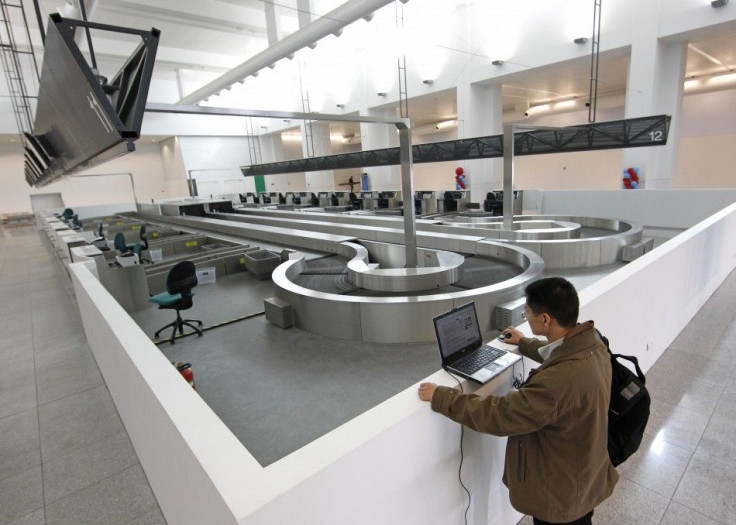America’s Most Tech-Friendly Airports & Airlines

How many times have you searched the labyrinthine airport for an available outlet or twiddled your fingers waiting on an ancient Internet connection?
On Thursday, PCWorld magazine released the results of its first-ever report on the Best U.S. Airports for Tech Travelers.
To come up with their results, researchers canvassed 3,300 gates at the 40 busiest U.S. airports testing 17,000 electrical outlets, 5,000 USB ports and 1,350 charging stations, all while monitoring the speed and strength of Wi-Fi and cellular service. Then, PCWorld rated major carriers and their efforts in the terminals, in the air, and online.
Today's air passengers routinely carry laptops, smartphones, and all manner of connected mobile devices, explains Senior Editor Mark Sullivan, who oversaw the project. To learn how well airports support these travelers, we had to outfit researchers with similar gadgetry and send them to the country's largest airports to perform real-world testing.
PCWorld is calling the survey its most complex undertaking ever, requiring two editors, one in-house researcher, 31 field researchers, four months of labor, hundreds of phone calls, the support of numerous airline and airport personnel, and the cooperation of the TSA.
The result?
Covering 40 airports around the U.S., the report named the top 10 as:
- Dallas-Fort Worth
- New York (JFK)
- Atlanta
- Detroit
- Sacramento
- Oakland
- New York (LaGuardia)
- Salt Lake City
- Baltimore
- San Francisco
The worst-ranked airport for tech-oriented passengers was Denver International, which earned low marks for a lack of USB ports and slow Wi-Fi and cellular service in relation to other airports.
In general, PCWorld notes an overall lack of electrical outlets at the nation's busiest airports. The magazine calls the average of 5.5 per gate woefully inadequate.
PCWorld suggests that the demand for electricity and connectivity will only grow in the coming years and airports will need to invest in IT infrastructure to attract an audience that expects it to be fast, free or subsidized and readily accessible.
The report further breaks the data down by listing the top 10 terminals, the top 10 airports for Wi-Fi, and the top 10 airports for cell service.
A separate survey compared the nation's 10 largest carriers based on tech amenities, fleet-wide Wi-Fi, mobile apps, and use of social media.
The report placed the 10 main U.S. carriers in the following order:
- Delta
- Alaska
- Virgin America
- American
- Southwest
- United-Continental
- US Airways
- Frontier
- AirTran
- JetBlue
Delta came out on top largely because of its use of social media, mobile app quality and percentage of planes with Wi-Fi. All of Delta's large domestic aircraft offer onboard Gogo Wi-Fi and the carrier is looking into outfitting its 250 international aircraft with Wi-Fi in the near future. PCWorld notes that the carrier had the strongest presence of any airline on both Twitter and Facebook.
Only about a third of the aircraft in fleets of the 10 U.S. carriers surveyed are equipped with onboard Wi-Fi, and though more airports are offering free Wi-Fi, fast, complementary service is still the exception and not the rule.
View the full results of the survey at PCWorld.
READ ALSO:
Why Airlines Make You Turn off Phones
© Copyright IBTimes 2024. All rights reserved.












